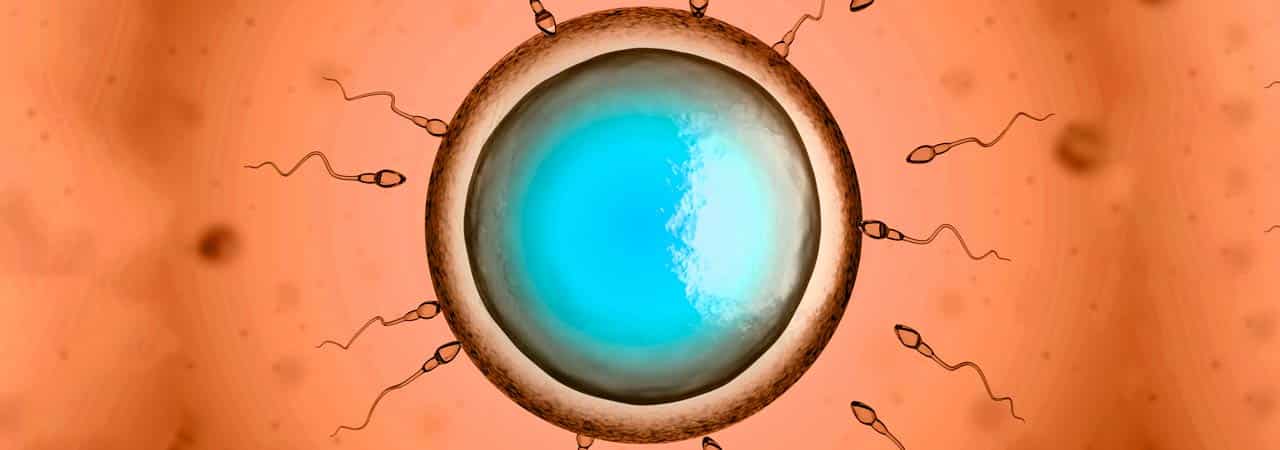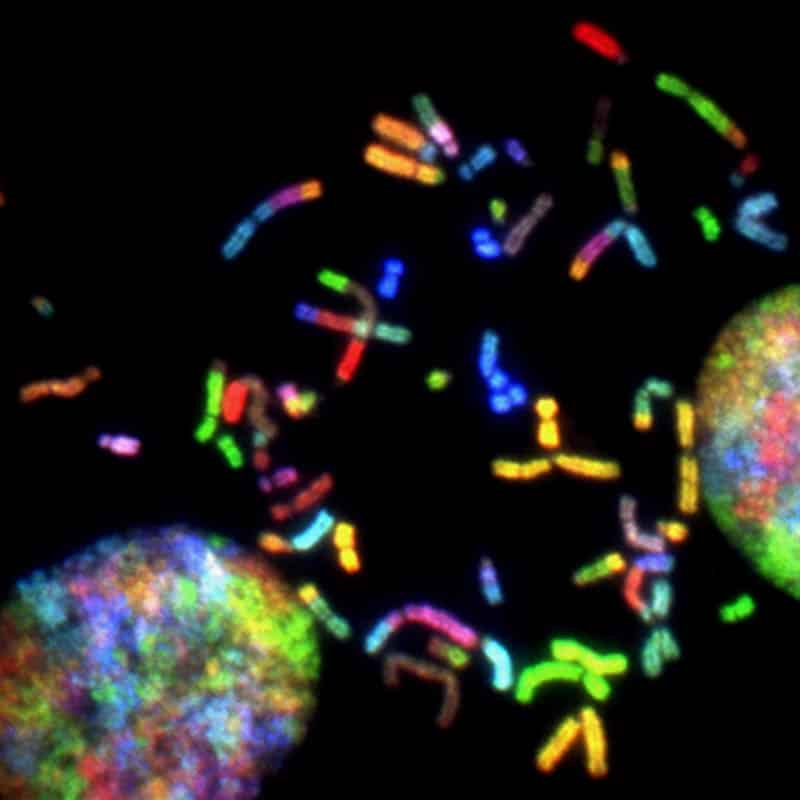
Assisted reproduction
Fluorescence In Situ Hybridisation
Fluorescence In Situ Hybridisation (FISH) in spermatozoa is a technique which revolutionised classic cytogenetics by applying knowledge of molecular biology. It consists of a genetic analysis of the male gametes and helps us to select the most appropriate assisted reproduction technique for specific patients.
Thanks to the FISH technique, we can study the genetic material of the male gamete using fluorescent probes which are specifically linked to a certain chromosome, enabling us to visualise the number of chromosomes in each of the spermatozoa of the ejaculate.
FISH testing of the ejaculate enables us to determine the levels of spermatozoa with anomalous chromosomes and to assess whether or not they surpass normality limits.

Studying the chromosomes
Any somatic cell of the human body has 23 pairs of chromosomes, i.e. two copies of each chromosome. In contrast, chromosomally normal human gametes (spermatozoa and oocytes) should only have 23 chromosomes, i.e. a single copy of each chromosome. In order to reduce the chromosome number by half to produce these gametes, a complex cell division process called meiosis is required. If this process does not take place correctly, the chromosomes are not distributed equally and gametes with chromosomal anomalies are formed.
FISH testing of spermatozoa usually analyses 5 chromosomes: the sexual chromosomes (X and Y) and chromosomes 13, 18 and 21. The testing can be extended to other chromosomes if this is recommendable due to the medical history. The number of spermatozoa that are analysed is usually 2000
When is FISH the right technique to use?
Various studies have drawn a connection between cases of poor semen quality and a high percentage of chromosomal anomalies in the spermatozoa. For this reason, it is recommend that FISH testing be performed in patients with a low sperm count: i.e. with severe oligozoospermia or teratozoospermia. However, this condition is also the main issue when performing the test, seeing as the low sperm concentration makes it more difficult to run the test.
FISH is suitable for the following cases:
- Implantation failure
- Recurrent miscarriage
- Prior pregnancy with a chromosomal disorder
- Patients who are undergoing chemo- or radiotherapy
The results of FISH testing will help professionals to choose the most suitable assisted reproduction technique and treatment for each case.





